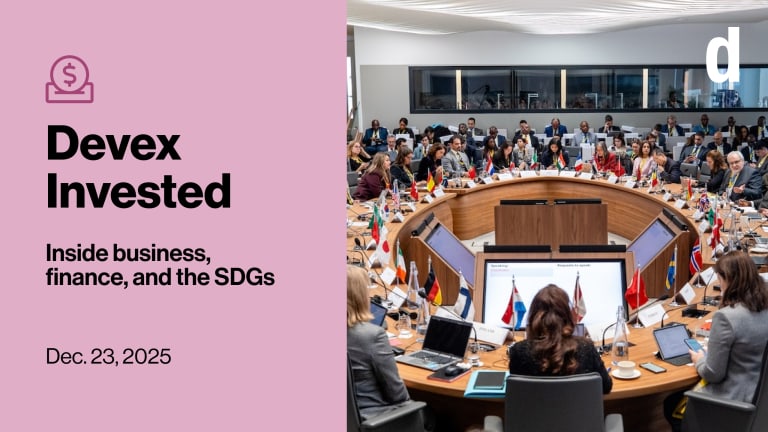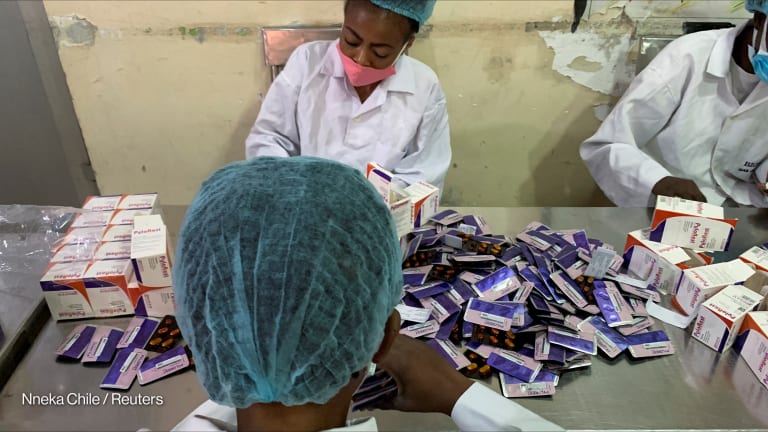
WASHINGTON — At an investment conference Friday aimed at building partnerships and increasing investment in Africa, top U.S. officials struck a chord that didn’t sit well with some of the participating African leaders.
The event included a number of announcements, including a new collaboration with African development finance institutions, and highlighted investments made by the U.S. International Development Finance Corporation and goals for a range of U.S. agencies moving forward. But the most contentious issue was about how Chinese investment on the continent is interpreted.
White House national security adviser Robert O’Brien, who gave the opening remarks at the online event, said that the U.S. approach stands in “stark contrast” to the Chinese Community Party.
“Whereas Beijing promotes a journey to China dependence, the U.S. promotes a journey to self-reliance,” he said, accusing China of wanting to exploit countries to serve its geopolitical goals.
The U.S. provides grants and transparent financing while China “pushes unsustainable and opaque loans,” O’Brien said.
“The result is the erosion of national sovereignty,” he said. “President [Donald] Trump has a strong message for you today. Choose a different path for your great nations. Choose independence, maintain your sovereignty, embrace self-sufficiency and true partnership. Above all, control your own future.”
Senegal President Macky Sall made it clear that this narrative does not sit well with Africans.
“We don't want our friends to see China's intervention and China as a threat to the partnership we have with them.”
— Senegal President Macky Sall“Africans today know exactly what their priorities are. And I'm very happy to see that Americans are concerned about the sovereignty of Africa. … The projects that we implement with our partners will not suffer from any encroachment on our sovereignty,” he said at the event, according to the live translation.
Senegal is open to all partners and has no exclusivity, Sall said. The country must open up to work with everyone, he added, noting that China provides critical long-term funding.
Africa never benefited from low-interest capital like Europeans did through the Marshall Plan after the Second War War, he said. African nations need the long-term loans China provides to build critical infrastructure, Sall added.
“We don't want our friends to see China's intervention and China as a threat to the partnership we have with them,” he said, adding later that he thinks partners “will gain a lot in listening, listening deeply to Africa and Africans.”
Sall and other African leaders expressed a desire to work with the U.S. to attract further investments.
This article is part of the Battle for Africa series
Read more about the new donors working and investing in Africa, alongside established donors hoping to reinvigorate their partnerships with the continent — exploring investments, approaches, and motivations.
“You observed that there is enthusiasm from other countries to invest in Africa. That’s the case with Asian countries — China and Japan, even Europe and Russia, of course,” Ouhoumoudou Mahamadou, chief of staff to Niger’s president, said in comments made on behalf of the president. “The U.S. should also contribute to that investment in Africa.”
He outlined a vision in which Africa processes more raw materials, has better infrastructure, and improves trade, saying that the continent needs to draw American investors to have the fast growth that it wants and needs.
But those investments need to go beyond just big energy projects, said Filipe Nyusi, Mozambique’s president. He acknowledged recent U.S. investments in natural gas in his country but said he is particularly interested in drawing investment to improve Mozambique’s agriculture system and wanted to find ways to use the energy investments to “strengthen the economy as a whole.”
“We want to offer opportunities to investors … not simply looking at the opportunities we have in gas,” he said.








